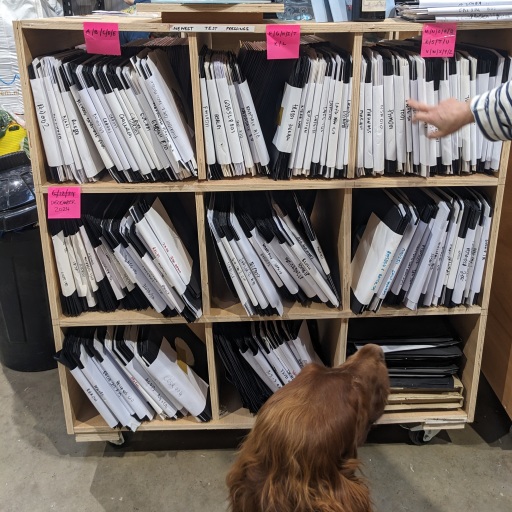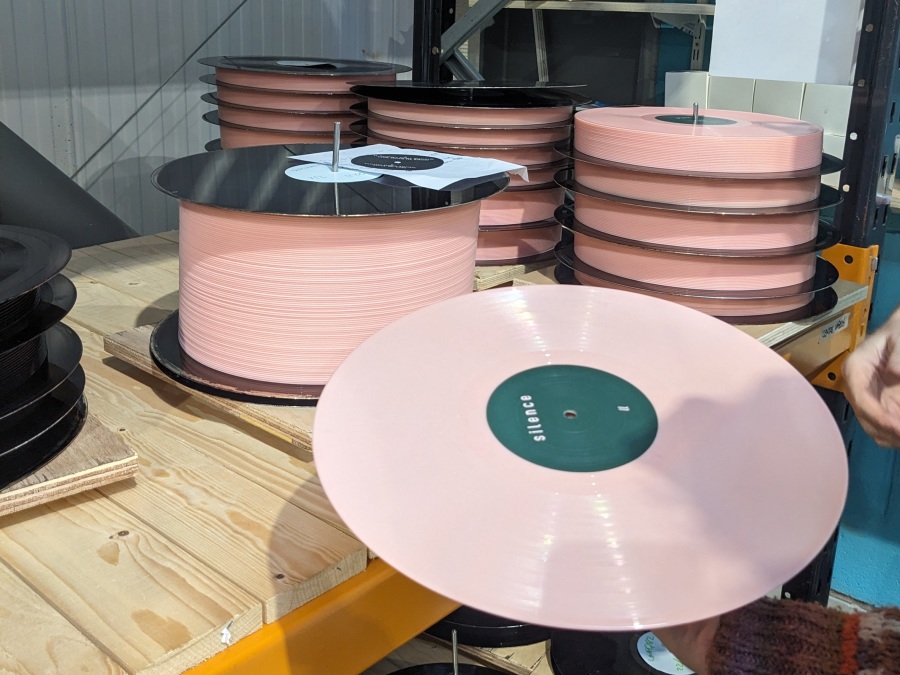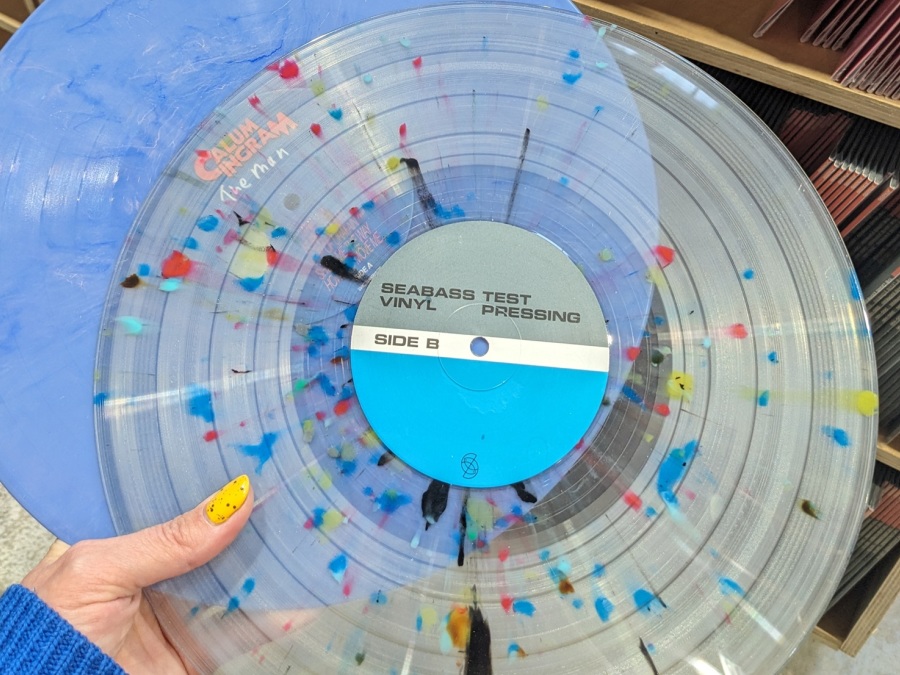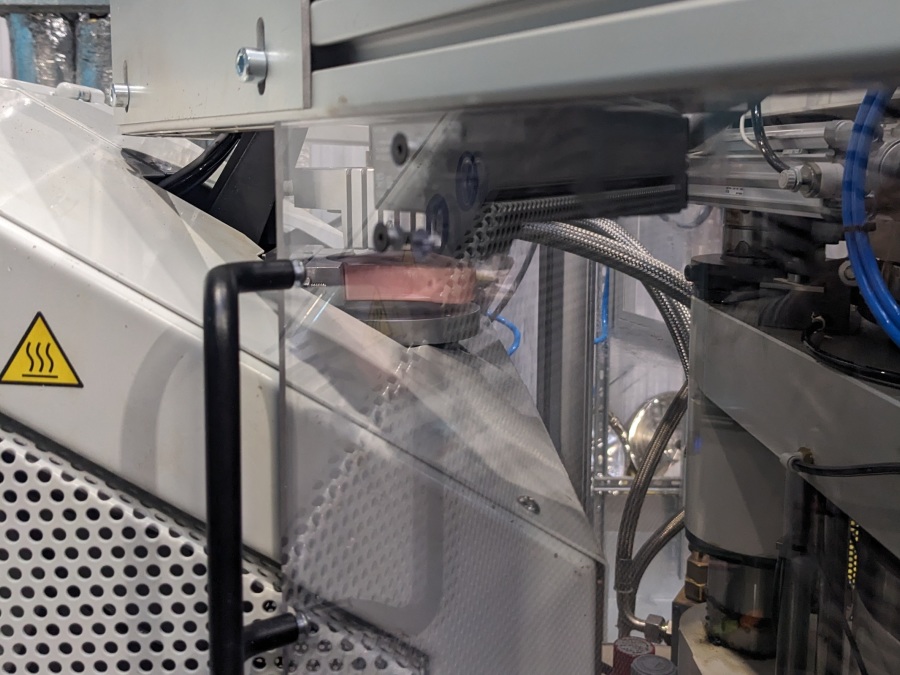Seabass Vinyl: Inside Scotland's only vinyl pressing plant
We head down to Seabass Vinyl, Scotland's only vinyl pressing plant, to get a behind-the-scenes look at how it's meant to be done – just in time for Record Store Day
A far corner of an industrial estate under the watchful eyes of sheep is not exactly where one expects the home of Scottish vinyl to live, but live there it does – welcome to Seabass Vinyl, Scotland’s only vinyl pressing plant.
Seabass is a family affair – we're greeted at the door of the plant not just by Dominique Harvey, one half of the ownership, but also Pepper the pup, an enthusiastic, if slightly distractible, part of the workforce. The other half of Seabass’s ownership is Dominique's husband Dave Harvey, an avid record collector turned record creator, who, along with Dominique realised they could put their passion for music into something tangible.
“We listened to a lot of music, and Dave, more so than me, was a massive vinyl collector… then during COVID we heard there was a lack of capacity of vinyl record production and as we knew there was no vinyl pressing plant [in Scotland], we decided to basically put all our money together [and start the company],” explains Dominique. How long did it take – from pipe dream to first pressing? “In August 2023 we went to Nashville for one month to learn the trade, and by November we were pressing our first record.”
If that sounds almost insanely efficient, that’s because, well, it is. Seabass Vinyl really is a well-oiled machine – it’s hard to believe it hasn’t always existed as part of the fabric of the Scottish music scene. The space is airy, but compact, with two machines doing all the pressing and cutting – the vinyl is made from bio-degradable pellets that are heated, then turned into a puck – the centre label placed perfectly on either side – and then pressed between metal plates (called stampers) engraved with the inverted lines of sound. The record is then cleanly cut, the edges (called flashings) slithering off and collecting in a bin of off-cuts. And voila, a new piece of solid, hold-it-in-your-hands music is created – it feels like something close to magic. We’re given a fresh one, still warm to the touch, to hold (a beautiful salmon pink number by Constant Follower – his latest, The Smile You Send Out Returns to You), and for this How It’s Made-obsessed writer, it’s a bit like Christmas.

Image: Tallah Brash.
We’re then led to the back of the plant and given a peek behind the curtain at the machinery that makes the whole thing tick – a huge, hulking beast that pumps the energy in from the solar panels, wind turbines and the rest of the renewable Scottish energy that powers the place. Dominique talks proudly about their commitment to sustainability – from the materials, to the energy used and their ethos of recycling and reusing, every inch of the process is made to be as environmentally conscious as possible. Seabass’s focus is not only on environmental factors, however, but also the community aspect. We are shown scores of records from local labels, from Rock Action to Lost Map. There's even what is affectionately dubbed the 'Last Night From Glasgow room', shelves upon shelves of records from the patron-funded, not-for-profit label. When we ask Dominique what these labels were doing before Seabass, she explains most of them were pressing records in Germany and the Czech Republic, which is not only costly but detrimental to the climate. Having Seabass in East Lothian means plenty of artists and labels alike can simply hop in the car, or jump on a train and go to the plant themselves, cementing that tight knit, local feel.
Dominique enthuses that helping Scottish artists is something close to their hearts: “We don’t do this for money… I think 80 or 90% of people we do this for have day jobs… We really feel for the artists and want to help them as much as we can. We try to make the price of vinyl as low as possible.” What this means is more Scottish, indie artists have the capacity to press high-quality records that end up in our shops – meaning this Record Store Day, a day with local community at its heart, you can be supporting local every step of the way. In our world of fast-paced, mass-produced, faceless product, it's heartening to know there's a sure-fire way to support what's on your doorstep.
This ethos of helping out the smaller artists alongside the bigger ones doesn’t come at a price of quality, however. Seabass are dedicated to making the absolute best quality records they can, and both Dominique and Dave oversee every element of the records' production, listening to each batch multiple times for even the slightest crackle, blip or imperfection. And if something isn’t up to (pardon the pun) scratch? It gets broken down and recycled, ground to a dust that is then used to make more batches of records. Dominique notes a quirk to this, telling us that records made with a little bit of recycled vinyl produce the best quality sound. It’s like they’ve got the memory of music inside them, and much like the community around them, they know the important thing is to give a bit of yourself to something greater.
Record Store Day takes place across the country on 12 Apr; be sure to look out for the latest Seabass Vinyl pressing on your next record shopping adventure


